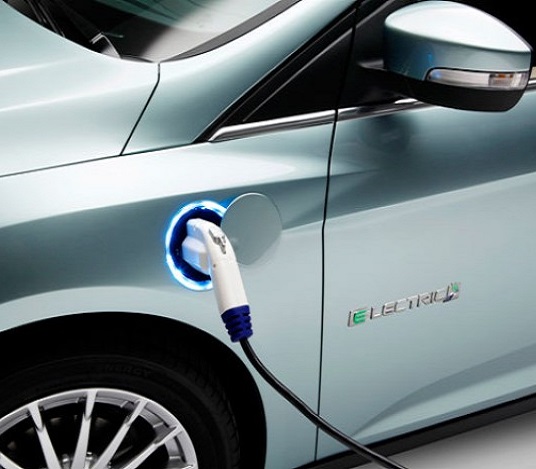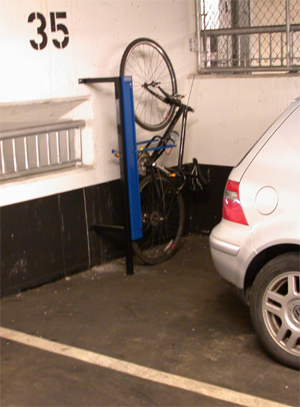Not any time soon, I can tell you that much.
But we’re hearing more and more about condominium owners running into trouble with respect to finding a place to charge their electric cars, and the condo management companies, and board of directors’, can’t make heads or tails of this.
Despite what U.S. oil money would have us believe, electric cars will be the way of the future. So when will Ontario condominiums adapt: before the change, or after?

In the history of Toronto Realty Blog, there have been over 40,000 posted comments.
I can’t say I remember them all.
I do remember a lot of them, believe it or not, some dating back a decade.
There is one comment that really stands out to me, and actually changed my perspective on urban planning. I constantly complain about the city of Toronto, even though I love it. I’m frustrated by the unfathomable lack of foresight by city council, the mayor, and stakeholders both within the city and throughout the province, with respect to the future of a city growing out of control.
For somebody that doesn’t take public transit, I’m one of the biggest proponents of spending billions of dollars of public money to build multiple new lines; underground, above ground, or in the sky – I don’t care.
Politicians work on primarily 4-year terms, and it’s as though nobody wants to stick his or her neck out after the halfway point, when campaigning is around the corner, by putting their name on a big-ticket promise, idea, or public expenditure.
As a result, no politician on the planet looks ten years, or twenty years down the line. How can they, when they have to constantly be on the lookout for threats to their own livelihood and employment?
I guess what I’m saying, is that I wish politicians and civil servants in position of power and influence over the broader public had more foresight, and thought longer-term, and tried to predict, and forecast, future trends.
So back to that comment I speak of – the one that changed the way I think about some elements of urban planning…
In early 2016, I wrote a blog post called “The Lonely Bike Lane.”
I’ve made it no secret that I don’t like bike lanes, not only because it’s a method of transit that pales in comparison to cars, but also because we live in a harsh weather climate, and only “that guy” in your office who dresses in spandex under his suit, will bike 12-months per year.
I haven’t changed my tune since, but that’s besides the point.
I took a lot of flak for that post; more than normal. There were a lot of people who agreed with my views, but an inordinate amount of pro-bike readers who let me know where I could stow my thoughts.
One comment stood out to me, however, and it was very simple. In regards to installing bike lanes, when so few people use them compared to cars:
It’s about being progressive.
Having read that, I felt like I was living with my head in the sand.
No, I don’t want more bike lanes.
But being progressive means the same thing as what I’m always talking about – having foresight, thinking long-term, and trying to predict and forecast future trends.
Maybe, just maybe, the future of downtown Toronto is a combination of public transit, bikes, cars, shuttles, Ubers, and perhaps a technology we don’t even know about yet.
I know somebody that works for Uber, and he told me once, “In thirty years, individuals won’t own cars. Everywhere they go, there will be an Uber to take them. It will become inefficient to own your own vehicle.”
Interesting thought, and one that might benefit from further conversation and debate, perhaps just not on this forum.
But can you imagine what it was like to be watching the 1984 Superbowl and see Apple Inc. debut their first commercial for the Mac?
Very few innovation’s happen in an instant.
Most take time to be accepted, and eventually, adopted.
Cars are not my forte.
I’ve never been a “car guy.”
I don’t know anything about rods, pistons, cylinders, or horsepower.
I think cars are a waste of money, and the only reason I drive a Lexus is because industry and society both deem a “luxury car” a necessity in real estate, and because a Lexus is basically a Toyota, which I drove since I was 16.
So no, I don’t know cars. And I’m not a technological savant.
But I’m a realist. And as a realist, I see the gasoline-powered car fading away in the next 15-20 years, despite a massive push against it from U.S. money, and probably a campaign of fear and misinformation, spearheaded by American stakeholders who would kill the planet for their grandchildren in order to make another $10 Million in personal income today.
There are some highly progressive countries out there that have already flocked to the electric car as a way of life.
In Norway, a whopping 29.1% of cars on the road are electric, and that’s a 2016 statistic, so the number is probably higher.
Rounding out the Top-10 countries for electric cars as a percentage of market share: Netherlands, Iceland, Switzerland, Sweden, Belgium, Austria, France, UK, and shockingly – China.
So assuming, naively, optimistically, realistically, or otherwise, that electric cars are the way of the future, when do we begin to adopt them into our homes?
If you own an electric car, and you own a house with a built-in garage, then you’re set – just park, charge, and come back in the morning.
But what about people who own condominiums?
What options do they have, currently?
What options will they have down the road, next year, or five years from now?
And what, if anything, will the government do to encourage condominium developers to include electric car-charging stations in their new designs?
Perhaps we’re a ways away from that.
It’s 2017, and maybe this is 2037.
And if that sounds familiar, then perhaps you’re familiar with Instagram star, “f***jerry,” who brings us this meme on a weekly basis:

It’s genius.
It makes a hybrid car look like child’s play.
Speaking of child’s play…

Alright, so if you don’t have jerry on Instagram, now I’ll say, “You’re Welcome.”
In any event, the burning question on my mind is: are we too early to this hybrid-electric party?
We know electric cars are better for the planet, and they’re probably going to replace gasoline-powered cars, but they still represent a fraction of the cars that are on the road.
So is it unreasonable to assume that condominium developers start including electric charging stations in each and every parking space in the underground parking garage? Or is this the very meaning of the term “progressive?”
Do you remember the first time you saw one of these in a an underground parking garage:

It was a such a revelation!
No longer did condo owners have to risk having their bike stolen out of the “bicycle room,” which is basically a buffet for thiefs.
That’s a single rack, and the “double rack” is even more common now, as there are tens of thousands of bike racks, just like this one, throughout Toronto condominiums.
And none of them existed a decade ago.
So is the car-charging port just the next step in the technological timeline?
We’re starting to see more and more media attention on this topic.
There’s growing sentiment that the Ontario government, if and when they update the Condominium Act, should address electric cars.
The CBC did a story last month – you can read it HERE.
The story, as is the case with many other reports out there, show that for most condominium owners who own, or want to own, an electric car, they find very quickly that there’s nowhere to charge, and the condominium board of directors aren’t looking to make charging possible.
The woman in the story above bought an electric car, found there was nowhere to charge it, and after petitioning the condo board, was told that the condo was “not ready to undertake this expense at this point of time given the fact that there is only one request” and that they “represent all owners and cannot accommodate one owner against the other owners.”
Well, to be blunt, what did she expect?
And this is part of the problem too. Condo owners can’t expect that a building’s board of directors is going to make a significant change to suite one resident. One, two, ten – how many does it take for the board to acquiesce?
If the board did agree, what would the process of retrofitting parking spaces look like? What would it cost?
In another story, an Ottawa woman is in a dispute with her condo, since they won’t let her charge her electric car in her parking space. Read that story HERE.
I suppose she’s lucky to have a parking space with an electric outlet, something that is exceptionally rare.
In fact, I was looking for an outlet in my underground parking garage so I could vacuum my car, and the only outlets were in the stairwell, or the elevator lobby; there’s not a single one in the garage itself.
So is it fair for this woman to charge her electric car on the condominium corporation’s dime?
Is there a compromise to be made?
The condo offered to build her a special charging station for $5,000, but she balked at the cost.
Once again, as is so often the case in society today, I think disappointment often results from lofty expectations.
I see an opportunity for condominiums to start building car-charging stations, ie. in the future. But if any current condo owner, living in an older building, thinks that he or she can, or should be able to charge their car, or have a special outlet built for them, they I think their expectations are out of whack.
Hybrid cars represent a new technology. I think it’s unrealistic to expect property management or the condo’s board of directors to make exceptions for the 1% of residents who want something that was never intended to be there in the first place.
Moving forward, it’s a different story.
I think the government may start to offer subsidies or tax breaks to condominium developers who build charging stations, or include outlets in the individual parking spaces.
Ontario has set a goal for electric car ownership of 5% of total market share by 2020, and 12% by 2025.
That’s all well and good, and offering incentives and rebates to buyers is one thing, but the government needs to remember that all these people live somewhere. Most in Toronto live in condos. So encouraging people to buy electric cars means nothing if there is no infrastructure at home to support them.































Ralph Cramdown
at 8:28 am
One problem is going to be deeded parking. It doesn’t cost much to put chargers in five or ten spots right next to the service shaft, but if the three “progressives” are scattered all over three levels of parking…
Just think how much of an extra incentive it would be if owning a unit and an electric car entitled you to a spot on P1 right by the elevators? Now stop thinking about that, because your sharp-elbowed and “non-progressive” neighbours would never let it happen, unless forced to by a rather major reform to the condominium act.
—
Now back from the Best Place on Earth, where I swanned about in the old BMW 7 I keep there for the purpose. What a car! Don’t ask about the fuel consumption, or gas prices out there.
Joel
at 10:01 am
Toronto is also going to need to address this with the many houses that do not have a parking pad. In 10-15 years we are going to need to have access to charging stations. Volvo was the first major car manufacturer to announce that in the next 2 years all of their cars will be electric or hybrid.
In 10 years time we are going to have people parked on the road and no way to charge their cars. Condos will have to start putting in a option for their residents. I think $5000 to add a charging station is very reasonable.
Boris
at 1:23 pm
Volvo is not a major can manufacturer, the industry shrugged this off entirely. About 0.5% market share in the US. They are keeping their diesel lines intact, which is widely used in Europe. It’s also owned by the Chinese. China is building 700 coal plants this year and it powers about 2/3 of their grid. Volvo, fake news.
T
at 6:01 pm
Everyone know’s Volvo and they aren’t a major manufacturer? Volvo has worldwide operations and they aren’t a major manufacturer?
Do you purposely look for comments you can attack with your assumptions and beliefs? It seems so.
Get a life.
Boris
at 10:32 am
In terms of what Volvo is doing, it is meaningless in the grand scheme of things. They are not discontinuing diesel, and have a global market share of under 1%. They are a very minor player, and are going after. Read the automotive press, it was a big yawn in the industry circles.
Everyone ‘knows’ DeLorean and Maserati too. How many cars do they sell each year (for different reasons)?
T
at 1:57 am
You missed the point – as you often do.
This blog article is about electric vehicles. A statement was made about Volvo electrofying their product line as part of a pro electric car and charging infrastructure comment.
You read that comment and felt it necessary to pick on one minor point you disagree with, then proceed to display your vast intellect for all readers to see, all while taking the coversation completely sideways.
Yes, Volvo is a major automobile manufacturer. Yes, they are electrifying their product line like all manufacturers – so we better get with developing the charging infrastructure at home and on the road.
And why even bring diesel into this? How in the world do you use diesel as part of your argument? Volvo produces commercial trucks as well as cars. You can’t get far pulling a load on batteries and diesel engines are vastly more efficient than gas.
Also, your 1% number is pulled right out of your … like all your numbers.
Cretin.
Real estate millennial
at 11:38 am
Maybe I’m stupid but why can’t the condo owner bare the cost of install and separate metering to their specific unit. As for developers make the roughins a requirement during development so the cost is already built into to the price and those who would like charging ports can pay for the unit and install. Maybe I’m over simplifying this but this doesn’t seem all that complicated. It just sounds like an older generation fighting change.
Jeremy
at 11:55 am
Step one would be a regulation of some kind requiring all NEW build condos to have X% of parking spaces with electric car charging infrastructure available, or as REM noted, at least rough in the basics to bring down the cost of adding it later. Increase the % annually. Retrofitting existing building building infrastructure is always going to cost a lot no matter what technology/feature you are talking about.
Planner
at 11:56 am
The City has some policy on this through the Toronto Green Standard, which are environmental rules for new mid and high-rise buildings.
City Planning requires than any development providing more than the minimum amount of required parking include “physical provision for future electric vehicle charging…”. There’s an optional incentive to provide electricity for at least 2% of residential parking spaces.
More info here: https://www1.toronto.ca/City%20Of%20Toronto/City%20Planning/Developing%20Toronto/Files/pdf/TGS/TGS_MidHiRise_Standard.pdf#page=3
Tamir
at 12:16 pm
This also touches a sensitive point in my life now where I would LOVE to get an electric car, but I cannot.
Why not? Because I live (own/paying off) an East York semi with a mutual driveway and no parking in the back.
So I can only charge my car every other month (due to an agreement with my neighbour).
I HAVE to buy a full-gas or hybrid (if I can find one I like).
But wait? Can’t I ask the City to let me put in my own parking spot to be able to charge my environmentally friendly car?
NOPE. There’s a moratorium on new front pads, the City doesn’t want to cut the curb (and reduce street spots) and I’d have to buy a different house with private parking and pay lots of taxes and fees if I wanted an electric car.
We live in interesting times…
GinaTO
at 12:27 pm
Indeed. You and Joel raised a critical issue. I can see the problem in condos, but at least there actually *is* a parking spot, and a wall behind it, so installing new infrastructure is technically possible. We (detached house) have to park on the street – no garage, no front pad. Any incentives would mean nothing to us, because we technically cannot have our own charging station. This laudable policy was thought of with the suburban-and-rural mentality of everyone having parking right by their house, but in Toronto, this will be a real issue.
LarryD
at 4:53 pm
“We (detached house) have to park on the street – no garage, no front pad.”
We’re in exactly the same situation. And I don’t know about your area, but on our street (I’m not sure if this applies throughout Riverdale or not) no more front parking pads are allowed, since there are already too many on our street (a policy I agree with despite the fact that it constrains me personally).
GinaTO
at 12:54 pm
Same thing in the Junction Triangle, Larry. And other people upthread also mentioned the upgrades that would be needed to the entire electrical system. Another thing someone, somewhere hasn’t thought about when pushing for electric vehicles.
lui
at 12:50 pm
So easy to solve this.Those who want a charging station just pool the money and have the corporation install one.Government should mandate that every gas station say 150km apart must install one charging station.If they can squeeze a Tim Hortons into a small station they should be able to install a charging station say next to the air pump.
Boris
at 1:12 pm
It is a good point that the city has not thought about the execution of these ambitious goals. We can’t even figure out transit or density. Keesmat should be hung, she’s a disaster.
The problem with forecasting EV penetration is that the only they have any market share is because of tax subsidies from virtue signalling governments that have been bought and sold by the corporations that make the vehicles.
https://www.bloomberg.com/news/articles/2017-06-02/denmark-is-killing-tesla-and-other-electric-cars
Elon Musk is a pioneer, genius etc. But make no mistakes, he is no Jim Rearden. He relies, lobbies on tax breaks and subsidies in the name of the new global orthodoxy – environmentalism – to scare governments into subsidizing his vehicles for threat of being ‘not green enough’ in the eyes of voters.
Side bar – have you ever seen how lithium is mined in some countries? Africa, South America and China specifically. It’s borderline slave labour and wildly damaging to the environment. Many of these countries are corrupt depotisms and leaders steal the proceeds of labour as well as other humans rights atrocities. Copper is MUCH more intensive in modern EV batteries than lithium, and some of the largest copper mines are in the same regions – DRC, Chile, China, Peru, Russia. So when you hear your favourite politician rattling about how we need EVs, you can be assured he is both complicit in vote purchasing and/or stupidity.
I haven’t even addressed power concerns, see the last link.
http://minerschoice.co.za/index.php/the-world-s-largest-2/61-the-worlds-largest-lithium-mine
https://www.chinadialogue.net/article/show/single/en/7262-Chile-s-pollution-grows-in-scramble-to-meet-China-s-copper-demand
https://www.masterresource.org/electric-vehicles/energy-usage-cost-gasoline-vs-electric/
Kyle
at 4:29 pm
That sideways toaster idea really is genius.
Max
at 4:52 pm
Maybe Tesla and other car manufacturers need to develop a charging mechanism that doesn’t require this kind of docking station. Maybe removable power units that can act like a power bank. charging stations.. are like the docking stations for iPods. A transitional phase of the technology. Charge the power bank at home. Have extra power banks for extending driving range. Would probably do wonders for sales and adoption even if the price is higher to begin with.
Boris
at 8:09 am
Aaaand this just happened. Compressed ignition in a gasoline engine leading to 20-30% better efficiency.
Impressive. Imagine this in a hybrid.
https://www.usatoday.com/story/money/cars/2017/08/08/mazda-gasoline-engine-brekathrough/549234001/
DJL
at 1:13 pm
I’m both a car guy, and a guy who knows a little bit (a very little bit) about the costs involved in provisioning electricity. As far as I’m concerned, the ability (or lack thereof) for electric car owners to charge their car at home (in a manner where the electricity is billed back to the user) is the single biggest constraint to the wide spread adoption of electric cars. Providing the ability for people to charge their electric cars in the underground parking isn’t just a matter of pulling a bunch of cables (which will be expensive enough), but it will almost certainly require a very expensive power upgrade to the building itself. Most apartment buildings don’t have enough excess power to support all those new 220v circuits, especially given that they’re all likely to be in use at the same ‘peak’ time (6pm-10pm), which also happens to be the same time a lot of people are running their ovens, and clothes dryers. They might be able to provision 20 percent of the spots for the cost of cabling (and metering), but after that, the costs of provisioning more power to the building to support the other parking spaces will frightening.
You mentioned that in Norway over 29% of all cars are electric, I was under the impression the number was lower than that, but it doesn’t matter. What matters is that Norway has such a massive incentive program for electric cars such that the purchase price of one of the smaller electric cars (a Leaf, or a Bolt), is basically the same as a similarly sized and equipped gas car; and there are a bunch of incentives on top of that (no road tax, free public parking, free public charging, free use of bus lanes, free use of public ferry boats, etc.). And yet despite all of that, electric cars make up less than 30% of the cars on the road. If an electric car is the same price as gas, and you get all sorts of free stuff on top, why are only 30% of the cars electric? Could it be because a significant segment of the population has no place at home to charge electric cars?
DJL
at 1:32 pm
Oh, BTW. The kid who turned his balcony into a pool only looks like a genius as long as his balcony doesn’t collapses due to the excessive load. Water weighs approx. 1kg per litre. How many litres do you think that balcony is holding, 750L, 1000L, more? I don’t know. What do you think the load rating is on that balcony? I don’t know that either. The only thing I’m absolutely certain of is the kid didn’t bother to consult an engineer before grabbing a tarp and a hose.
Which just happens to be a perfect metaphor for this discussion. Providing the ability for people in high density housing to charge their electric cars in the parking garage involves a lot more than simply pulling a bunch of cables. If you put too high a load on a building’s power infrastructure, or for that matter a neighbourhood’s, the results could be the same as if you put too high a load on a balcony – collapse.
Kyle
at 8:51 pm
I was thinking the same thing about the balcony. If the concrete doesn’t give out, those glass railings eventually will.
Curious to know how much a typical hydro bill is for someone who has an all electric car that drives 15,000 km / year? In Toronto, it *may* cost less than gas to run, but anywhere where Hydro One is the provider, then your car may as well run on gold bars.
Condodweller
at 1:55 pm
Uber cannot by definition replace car ownership considering Uber drivers own their cars. I think Elon Musk’s vision of driverless cars that can be shared among family/friends/select groups etc will be more likely. Even then someone will still need to own the cars.
T
at 6:10 pm
My previous condo around Lakeshore and Bathurst had no issues installing the necessary infrastructure in parking spots to support electric vehicles. There was a cost of a few thousand for the installation.
In that condo building there are individual hydro meters for each unit. The hydro for the electric cars is branched from these meters. Perhaps this type of infrastructure makes it easier to deliver service to the parking spots. I wonder if this is something which should be identified when purchasing a condo. It must help the value, especially long term.
franco cicchetti
at 12:41 pm
I was reading years back that elon Musk wants to create battery swap stations. Instead of charging your battery you go to a battery swap station. It will require standardization across the industry for it to work.
Basically when you are low on power you pull up to the batter swap station. The station will take your battery and charge it and you will be given a fully charged battery in return.
Basically you don’t own the battery you simply, keep trading it. These places could open where gas stations were located. This is great as it will allow people to go on road trips. It will allow condo owners access to the the electric car.
This will alleviate the cost of people having to buy charging stations and having to upgrade their electrical systems.
But all manufacturers need to agree on one battery as the standard.
Sabrina
at 8:37 am
EV cars with lithium batteries parked underground with water filled fire sprinkler systems a problem. Water and lithium fire bad combination ,6000 degree f. melts steel . My question will buildings be forced to switch to a foam fire suppression system to get insurance .